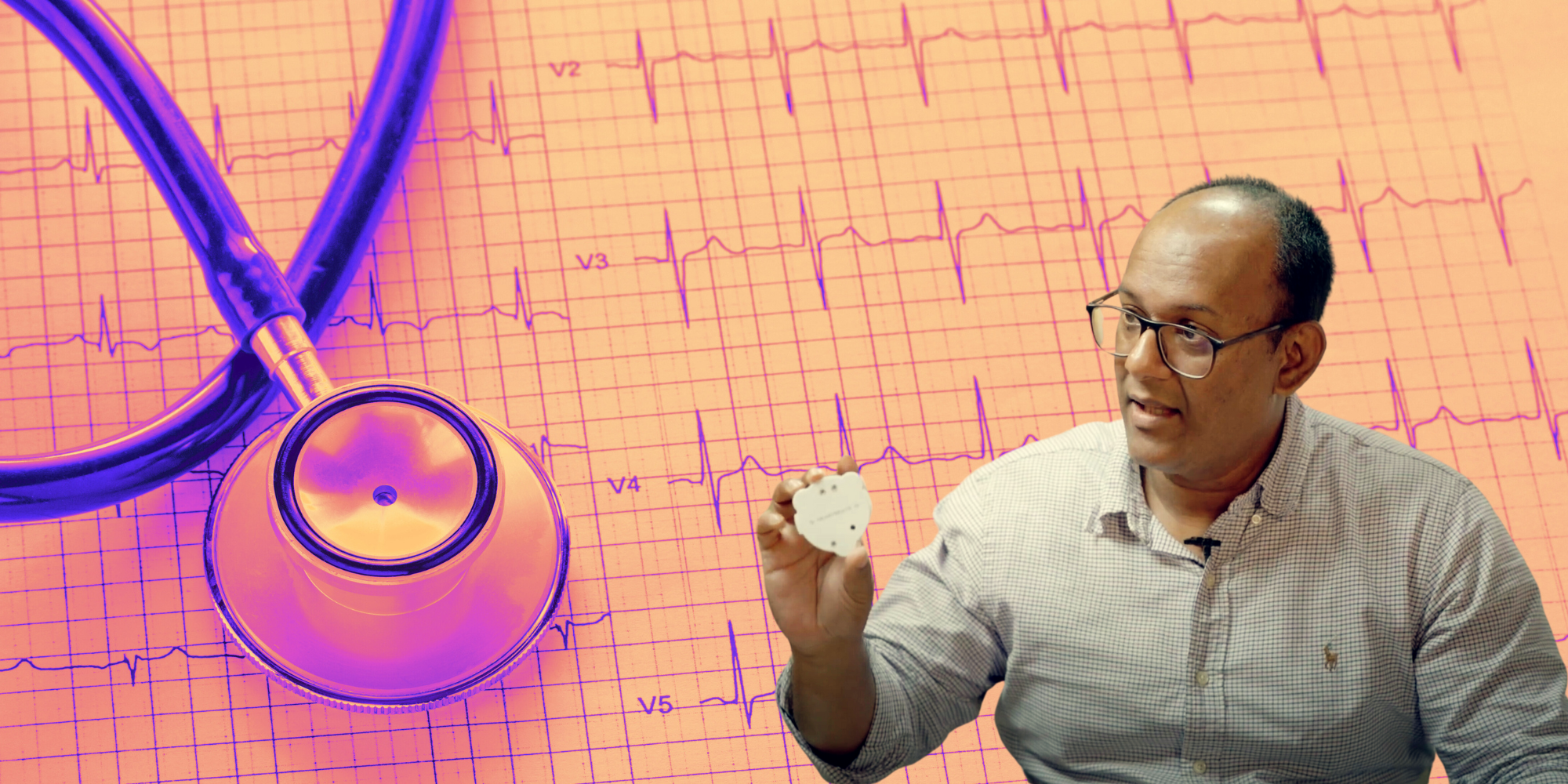Tarak and his startup, Abhaya, seek to transform the landscape of cardiac care with HeartBeats, the world’s first Wi-Fi enabled continuous real-time ECG monitoring device.
The goal? To help doctors save lives by providing crucial real-time heart data for better medical decisions.
The journey from concept to reality
Tarak’s journey began back in 2019, with no initial intention of building a groundbreaking device. He just wanted to provide doctors with real-time data, but circumstances pushed him to create the world’s first Wi-Fi enabled, real-time ECG monitoring device.
His first attempt was a large, unwieldy prototype that eventually gained attention from industry leaders at BioAsia 2020, he says. The challenges along the way were immense, from securing certifications to scaling down the size of the device.
It was a series of breakthroughs, persistence, and a belief in the product that eventually led to the creation of HeartBeats, an innovative solution for real-time ECG monitoring.
With support from hackathons and grants by the Ministry of Family Health and MEITY, Tarak and his team pushed through, transforming their concept into a functioning device.
Real-time monitoring for better outcomes
What sets HeartBeats apart is its ability to offer real-time monitoring of heart activity, even beyond hospital walls. Unlike a traditional ECG, which records data for just a few seconds, HeartBeats continuously monitors for abnormalities like atrial fibrillation and ventricular tachycardia, which are often precursors to critical health events like strokes.
HeartBeats’ inbuilt AI analyses the heart’s rhythms, alerting doctors in real time if it detects any dangerous anomalies. This technology provides invaluable insight, allowing healthcare professionals to take proactive measures before it’s too late. For patients, it means reassurance and the chance for timely interventions that could save their lives.
The impact on cardiac care
The device is particularly effective in hospitals for patients recovering from major cardiac procedures like CABG (Coronary Artery Bypass Graft) surgeries. It helps in identifying atrial fibrillation, which could lead to ischemic strokes if left unnoticed.
As Tarak points out, 25-30% of post-CABG patients have a risk of developing silent atrial fibrillation, which HeartBeats can detect, giving doctors a vital window to take preventive action.
Moreover, the ability to monitor patients at home has allowed the device to help those in remote regions. For example, in Kishanganj, Bihar, Tarak was able to successfully monitor a patient with HeartBeats, providing much-needed reassurance to both the doctors and patients.
Scaling the vision
As Tarak looks to scale the HeartBeats device, his primary challenge is increasing awareness among hospitals and healthcare providers about its capabilities. The device is not just about monitoring; it represents a shift towards preventive, data-driven healthcare, aiming to bridge the gap between patients and doctors, especially in critical moments.
Abhaya’s mission is aptly reflected in its name – “fearlessness.” HeartBeats strives to eliminate the fear associated with unpredictable cardiac events by enabling proactive care and real-time monitoring. Tarak’s call for support is simple – help spread the word and bring this life-saving technology to every hospital and healthcare provider in India.










